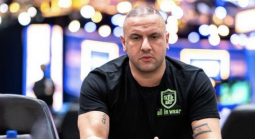Unsolved Mysteries of the Gambling World Part 1: The Cantor Curse?

When one thinks of Cantor Gaming, the first thing that might not come to mind is the tragic events of 9-11 when two planes were flown into New York’s World Trade Center buildings. Those buildings ultimately collapsed and 2,996 lost their lives.
Cantor Gaming (now going by the name CG Technologies) is an offshoot of Cantor Fitzgerald, founded in 1945 by philanthropist Bernard Gerald Cantor. This is the same Cantor Fitzgerald that lost 810 employees during the attacks of September 11, 2001 or just over one quarter of those who perished that fateful day.
In the past 15 years, the Cantor organization (going by various names) has survived a plane attack on its office space and various arrests including that of their prominent sportsbook director.
How could this be? How can any company survive what Cantor has been through?
Beginning with the 9-11 attacks, this remains one of the biggest mysteries as Gambling911.com first illustrated back in 2008.
In the true life stranger than fiction category, Cantor Fitzgerald Securities and its subsidiary eSpeed network are one for the books, reported Judi McLeod & David Hawkins for the Canada Free Press that same year.
Cantor Fitzgerald's New York office, on the 101st-105th floors of One World Trade Center, lost 685 employees. Its e-Speed electronic bond-trading network lost 125 souls.
McLeod and Hawkins wrote at the time:
“Happily for the disciples of "Kyoto Mo" (Canadian Maurice Strong), who argues that global climate change is driven by anthropogenic gases emitted by inhabitants of the Anglosphere, a six-member eSpeed carbon-credit trading team escaped death. Their annual one-day fishing trip had to be cancelled about 8 a.m. on the fateful morning of September 11, due to alleged bad weather over the Atlantic. Can anyone confirm the weather? New York looked pretty sunny.
“Hearing that the Twin Towers had been hit, the six lucky fishers hightailed it to New Jersey, to what Joseph Noviello, executive vice president said of Rochelle Park, N.J., ‘where we had duplicates of everything that was destroyed at our offices in the world Trade Center.’
“Not only did the six execs happen to have a WTC duplicate to turn to, but by napping on the floor, including one who grabbed shuteye by resting his head on an overturned coffee cup, they got an electronic trading operation up and running within two days of the tragic events.”
Almost four years after 9/11, this bizarre birth of the Cantor-eSpeed electronic trading operation seemed to have morphed itself into Kyoto Mo's "Global Hub for Carbon Commerce".
In late-May 2005, six executives of Cantor Fitzgerald were among 36 arrested in gambling raids on the illegal Safe Deposit Sports gambling ring, in New York.
Gambling911.com at the time confirmed an ongoing investigation into others allegedly involved with an offshore sportsbook Safe Deposit Sports business, which many believe could have led to the downfall of mighty BetonSports, having leased space from the later group’s sprawling office complex in San Pedro, Costa Rica's nine story Mall San Pedro.
In an ironic twist, one of the executives learned of his pending arrest after reading about it on Gambling911.com that morning.
Then came Michael Colbert, a former director of risk management and vice president with Cantor Gaming in Las Vegas who was arrested back in 2012. He was charged for his role in a nationwide illegal bookmaking ring. Colbert would later plead to a single felony charge of conspiracy.
Upon his arrest, Nevada state regulators vowed to look into any potential role Cantor Gaming may have had in the illegal sports betting ring. Cantor also agreed to cooperate.
Robert Hubbell, a spokesman with Cantor Gaming in New York, distanced his company from Colbert at the time saying that the company had "found nothing to indicate that (Colbert) was using our system or accounts for wrongdoing."
"Although the charges were not related to his responsibilities at Cantor Gaming, it is important to note that our account wagering system is designed to prevent misconduct," Hubbell added.
Any other company probably would have been taken down after all these bizarre occurrences. But not Cantor.
In fact, they are very rich thanks, not only to their thriving fixed income sales and trading group, a real estate business and gaming division, but the firm was also awarded $135 million in 2013 as part of a settlement with American Airlines. Cantor Fitzgerald was suing for loss of property and interruption of business, alleging the airline was negligent by allowing hijackers to board.
And today Cantor, going by the name CG Gaming, continues chugging along.
True to form, CG Gaming is among the only group in Vegas supportive of sports investment hedge funds in Nevada. The state made the activity legal at a time when the Courts have denied other states – like New Jersey – from allowing any form of sports wagering.
Essentially, out-of-state businesses and investment groups are now permitted to put their money in funds managed by or on behalf of sports handicappers who legally make bets in person in Nevada, as described by CNBC.
Cantor/CG Gaming is likely to be the biggest beneficiary.
The Cantor curse?
Maybe not. Instead, they are the gift that keeps on giving.
- Alejandro Botticelli, Gambling911.com














